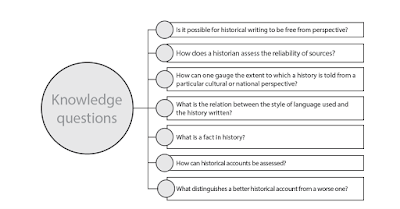Only four men survived the ship wrecked Mignonette in 1884, floating for three weeks in the Atlantic in a lifeboat. On the 19th day the captain Thomas Dudley suggested they drew lots to decide who would be killed and eaten, but one man objected. On the 20th day Dudley told the others to look away, offered a prayer and cut the throat of the cabin boy, aged 17, who was sick from drinking seawater. They ate his body. Four days later they were rescued by another ship and the three survivors were charged with murder in the law case The Queen v. Dudley and Stephens.
It is significant that murder and cannibalism could be argued to be reasonable in this case. On utilitarian grounds the actions of Dudley are justified because they promote the greatest happiness of the greatest number. However, using deontological ethical theories, murder is wrong in itself, regardless of the consequences for others. If cannibalism is disgusting and our emotional response is that what happened is intuitively wrong, we might ask is our disgust reasonable? Would we have done otherwise? Or could the case be put that Dudley acted rationally?
In TOK ethics, it is tempting to conclude that because there is no agreement about standards of right and wrong, it follows that there is no knowledge in ethics. After all, individuals and cultures do not have the same moral standards. However, our ethical judgements are just that - judgements. We can make better or worse judgements in ethics and our task in TOK is to know the difference. Paul Grobstein stated that: "there is no such thing as 'right', the very concept needs to be replaced with 'progressively less wrong.' " So although certain knowledge in ethics is hard to find, we can make progress by arriving at moral judgements that are considered. So in your response to the case above, ask yourself 'why do I think that?'
In ethics we are dealing with a plurality of truths. It'll be worth questioning the basis there might be for ethical truth across cultures. What are good reasons for holding our moral beliefs? Pay close attention to the words used to express moral viewpoints; we know that in the language or war, 'one man's terrorist is another man's freedom fighter', and in the above case, 'one man's cannibalistic murderer is another man's hero with superior survival instincts.'
Perhaps the challenge in TOK ethics is to look for what moral knowledge cultures might have in common. Even the notion of right and wrong is shared across cultures, even if the standard which that approximates to differs. The idea of shared values is embodied in the idea of universal declaration of human rights (1948).
So to conclude, tolerance of other people's views is a fundamental principle but it does not follow that all moral views are of equal value. Freedom of speech and the right to express your own view is essential, but there may be some moral views that are not as sound as others. The task of ethics is to examine the grounds on which we hold our moral beliefs. How do we decide about the case above; killing a person as a means to an end is objectionable, but the instinct to survive in extreme conditions might demand we re-think our moral paradigms? It's for you to decide.
For more top tips for Theory of knowledge visit Elvira Vian's Theory of Knowledge student
Article Source: http://EzineArticles.com/expert/Elvira_Vian/561764
Article Source: http://EzineArticles.com/3779710This should whet your appetite for ethical debate and moral reflection. Please listen to Michael Sandel's lecture on 'Justice' and 'The Moral Side of Murder' for Harvard University. He tells the story of the Mignonette shipwreck 30 minutes into the lecture.
https://www.youtube.com/watch?v=kBdfcR-8hEY&list=PL30C13C91CFFEFEA6
If you were a member of the jury trying this case would you rule that the action of the crew was morally permissible, or not?


